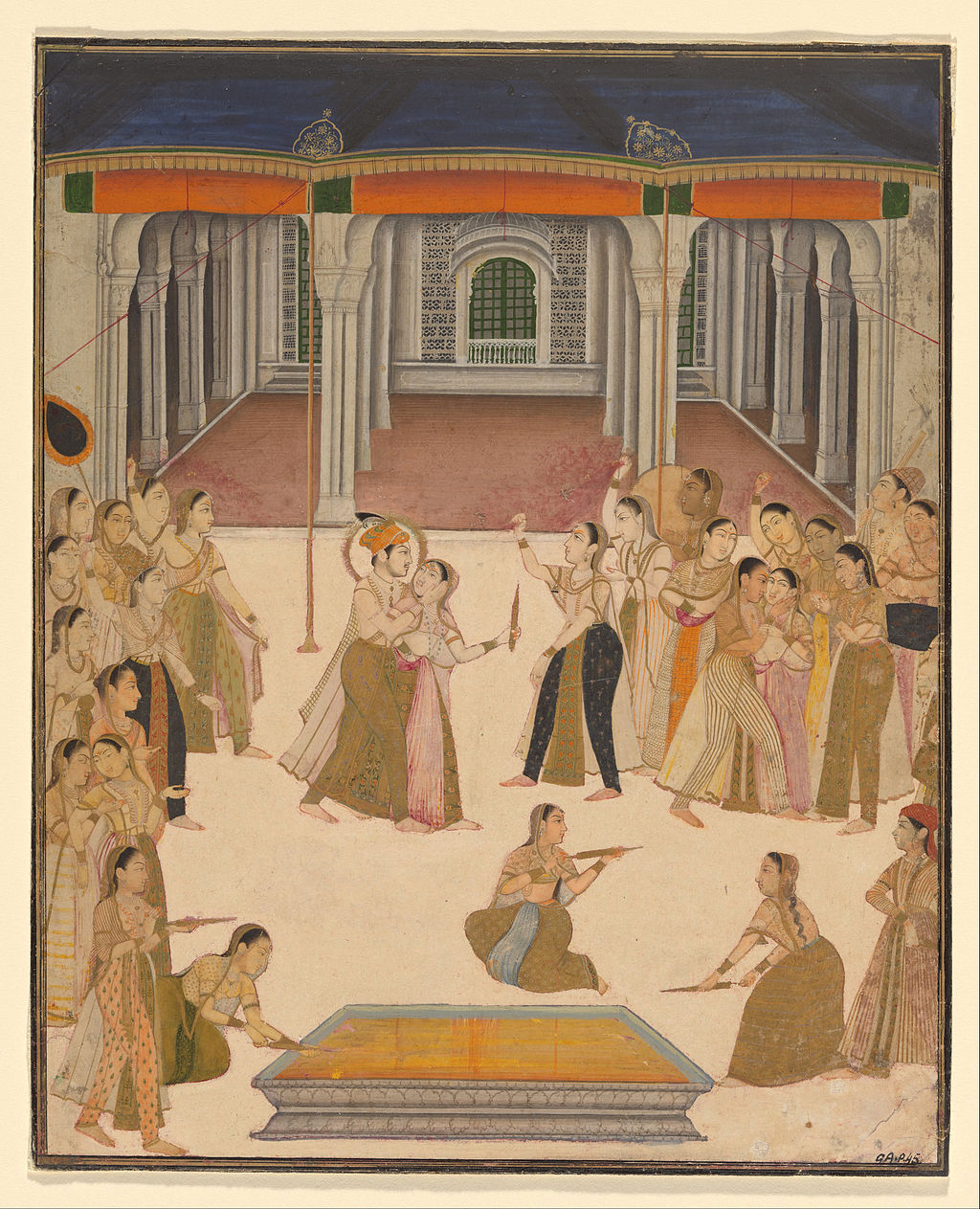As my alarm rang at 4:00 in the morning, my excitement mixed with anxiety. I tried to ignore all of the emotions I was feeling and just accept that I was going to do this no matter what--I would hike up the Manitou Incline whether or not I was physically ready for it. I had driven to Colorado primarily for the Incline, and I would not leave until it was done. I would push through every single one of the 2,744 steps even if it took me all day. Locals apparently hiked it weekly in under an hour with ease, so why couldn't I at least try it?
The first few steps made me overly confident. It wasn't too steep yet, and I was passing people already. Then, about 15 minutes in, I realized my error. Those people I had passed were now passing me as I slowed to catch my breath. I knew I would need to take it slower.
The Incline from near the bottom. The top half is hidden from view, which makes you constantly think you're almost there...but you're far, far from it. (Personal image, October 2018)
Some minutes would pass quietly, where it was just me, the sun rising, and the people hundreds of steps both ahead and below me. Other minutes, someone would catch up with me and a stranger would become a hiking buddy. Then one of us would decide to pick up the pace or slow down, and silence would return.
Halfway up, I sat down to take a break and was glad for it. While the amount of steps I saw below me did not compare to the amount I thought I had walked up, it was still an incredible feat. That didn't even compare to the view of the town below and the mountains in the distance. I was happy to be there, even if my rapidly beating heart wasn't.
About 2,200 steps in, a deer slowly made its way across the stairs, giving me an excuse to take another break. 2,400 steps in, I wondered if I should just turn around, but then realized my brain wasn't thinking clearly because that would make no sense--I was almost there.
Those last 344 steps were a lot. Extremely steep, and extremely tiring. There were some times when I almost fell backwards because it was so steep. I had to use my hands to climb at one point. Every muscle in my body was screaming, so I took multiple breaks because I'm a firm believer in not creating a preventable dire emergency situation.
Near the top. (Personal image, October 2018)
Then, at last, after about two hours total, I was there. I had pushed through all the aches and pains, and I could now enjoy the view from 2,000 feet up. A few chipmunks were running around, looking at all the sweaty and exhausted people. I didn't really know what to do with myself at that point, so I just sat down and appreciated what I had accomplished. I ate some trail mix, made some friends, took some pictures, and watched Colorado be beautiful.
View from the top. (Personal image, October 2018)
Then, with stiff muscles, I began my descent.
I'm hoping someday I can live near the area and learn to hike it in an hour like the locals, but for now I'm proud enough that I finished. I definitely got lost on the way down (you have to take a different route back), and then proceeded to get trapped in my hotel elevator for 45 minutes and had to have firefighters help me out, but those are stories for a different time.
A chipmunk(?) friend I made at the top of the Incline. (Personal image, October 2018)
A picture I took on the way down. (Personal image, October 2018)
________
Author's Note: In trying to decide what to write about, I realized a story could be told about my hiking adventures. I might write about my Grand Canyon and Hawaii hikes in the future, but for now I started with this one that is extremely important to me. I'm not sure why, but it holds a special place in my heart. Ever since I visited Manitou Springs and saw people walking up those stairs, I knew I wanted to trek up it, too. It's such a simple hike but it makes you feel like you've accomplished so much. While writing this story, I had trouble deciding what to include and what to take out. I didn't want to make it too long, but there are some details that are just too significant to leave out. I'm pretty happy with the length I decided on and the way I told the story.









































